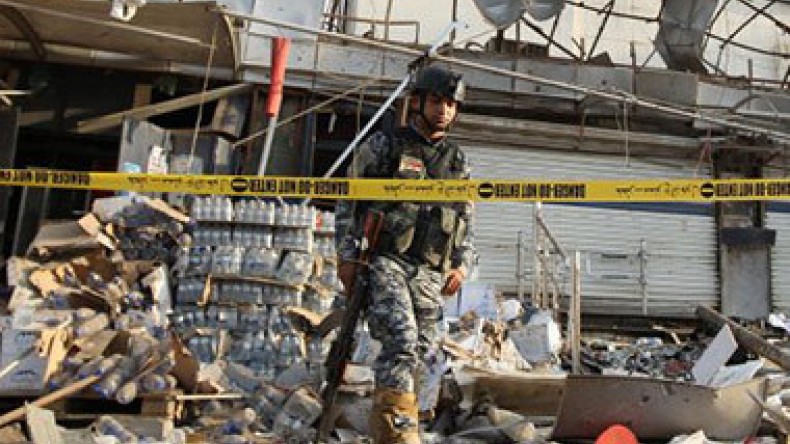
Saudis behind Iraq’s sectarian crisis – expert
Press TV has conducted an interview with Zayd al-Isa, Middle East expert from London, about a series of car bomb blasts in the Shia-majority areas of the Iraqi capital Baghdad.
Press TV: Considering that this did occur on a day which is so important especially to the Shia population of Iraq, would you describe these attacks as sectarian in nature?
Al-Isa: Definitely. I mean these attacks have been ongoing and they are absolutely not new but a continuation of an intense, relentless campaign against the Iraqi people, principally the overwhelming majority of the Iraqi people that is the Shias.
And it comes hot on the heels of the Iraqi elections and as a severe punishment for the Iraqi people who against all the odds have taken again to the ballot box and they have casted their ballots despite a relentless, ongoing and intense campaign to deter them and to chip away any confidence they had in the political process and that is why we have seen that the targeting is mainly directed at the Shia, at the overwhelming majority of the Iraqi people which is the Shia in order to stir up and foment sectarian strife in Iraq.
Now the perpetrators are the al-Qaeda and also the remnants of the Baathist regime but the driving force behind this continuous, relentless campaign is actually the Saudi regime and it has been lately that the Iraqi Prime Minister had acknowledged and confirmed that the principle backers of the sectarian crisis, security crisis and all the financing, arming, logistical support and media support has been coming from the Saudi regime which has put its money where its mouth is.
Now this has been happening since day one in 2003 that overarching objective of the Saudi regime was to discredit, derail, destabilize and the ultimate goal is to dismantle the political process in Iraq and the fledgling democracy because it is perceived by the Saudi regime as the main major and existential threat by inspiring and emboldening its people who are suffering from the West tyrannical dictatorship where their country is the bastion of dictatorship and the legitimacy for this dictatorship comes from the Wahhabi Salafi extremist militant religious establishment which is based in Saudi Arabia which gives the religious legitimacy, religious backing and also religious incentive for al-Qaeda and the Baathist to commit those horrible heinous crimes against the Shias and against other minorities in order to stir up sectarian strife and sectarian conflict ...
Press TV: Mr. Isa, if I could just come in here. I wanted to ask about, you know you mentioned the Saudi factor in all this and their support of this sectarian war that is taking place in Iraq against the Shias especially over there as a majority.
Do you believe that at some point there will be some sort of a backlash upon the Saudi state itself considering of course it has a significant population of Shias as well?
Al-Isa: Well I mean we have seen the backlash against the Saudis happening after they spearheaded and were at the forefront of countering the popular uprisings which happened in Bahrain and happened inside Saudi Arabia, that is the Eastern Province which is occupied by the Saudis against the will of its own people.
We have seen the Saudi regime invade until this very day occupied Bahrain and used massive disproportionate force and unleashed ferocious murders, onslaught against the people in the Eastern Province for simply demanding equality.
We have seen that happen and that is why we see that the Saudis are steadfastly determined to stir up sectarian strife not only in Iraq, in Syria and in Lebanon in order to convince their people after the patently deceitful myth that the Saudis have propagated for many decades that it is the guardian and defender of Sunni Islam has fallen apart because the people have seen that the regime has been at the forefront of trying to hold at bay or turn the tide of the insatiable appetite for democracy by their own people by actually convincing them that they are engaged in battling and confronting an existential threat coming from the Shia and namely from the Islamic Republic of Iran and in order to convince them that there is a battle ongoing and anyone who dares to oppose the Saudi regime is accused of betraying that regime and we have seen them being steadfastly determined to quell any popular uprising which has already started in Saudi Arabia.
And we see that strategy, actually the focus was simply at the beginning on Syria. The overwhelming objective of the Saudi regime was to topple the Syrian regime and that is why they focused on Syria.
Newsfeed
Videos






























